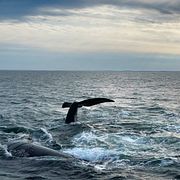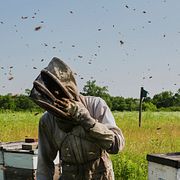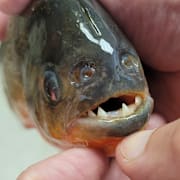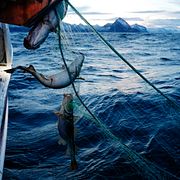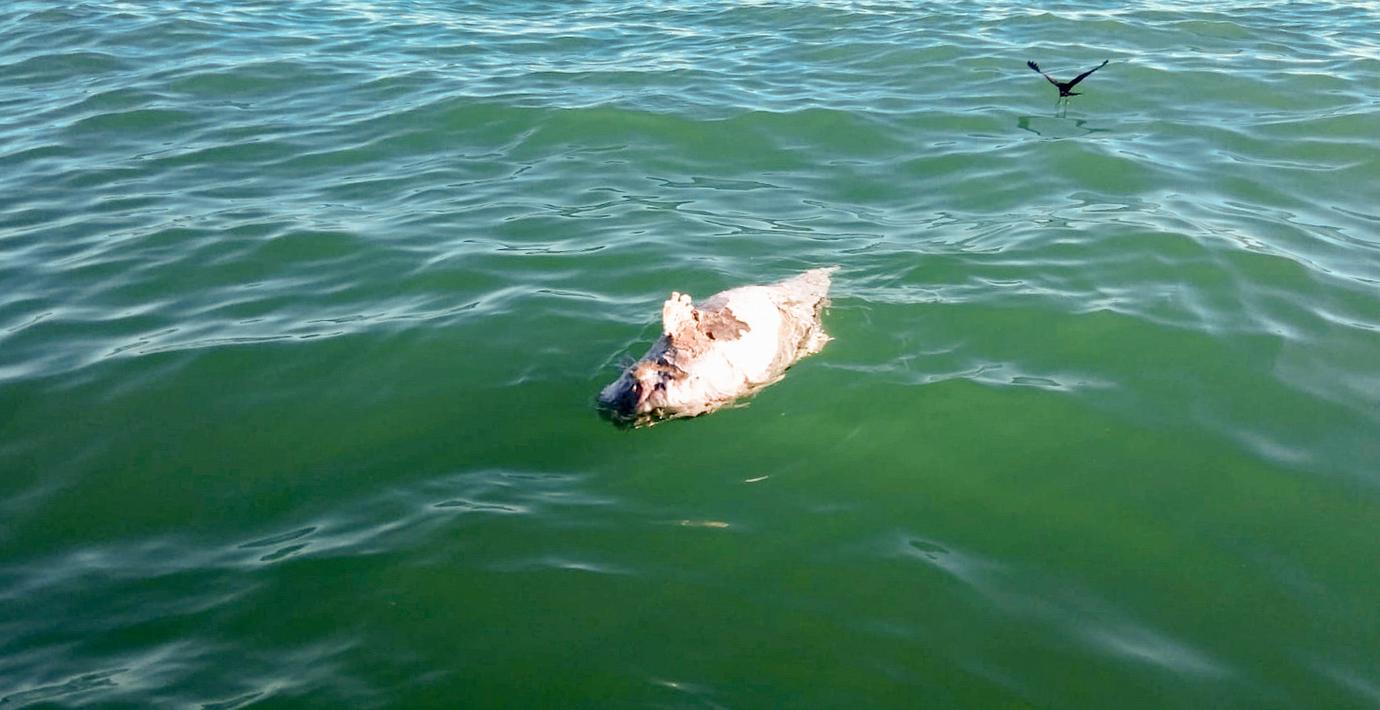
Världens minsta val bara månader från att utrotas
Världens minsta val, Kaliforniatumlare, kan vara månader från att utrotas, varnar forskare enligt TT.
Forskare uppskattar att så få som bara tio individer av Kaliforniatumlaren finns kvar i vattnen utanför nordvästra Mexiko, som är artens enda hemvist.
Miljöorganisationer uppmanar omvärlden att införa handelssanktioner mot landet, eftersom man inte lyckats stoppa det illegala fisket som hotar arten. Mexiko hävdar å sin sida att man redan gör allt man kan.
bakgrund
Kaliforniatumlare
Wikipedia (en)
The vaquita (Spanish: [baˈkita]; Phocoena sinus) is a species of porpoise endemic to the northern part of the Gulf of California that is on the brink of extinction. Based on beached skulls found in 1950 and 1951, the scientific description of the species was published in 1958. The word vaquita is Spanish for "little cow". Other names include cochito (Spanish for "little pig"), desert porpoise, vaquita porpoise, Gulf of California harbor porpoise, Gulf of California porpoise, and gulf porpoise. Since the baiji (Yangtze River dolphin, Lipotes vexillifer) is thought to have gone extinct in 2006, the vaquita has taken on the title of the most endangered cetacean in the world. It has been listed as critically endangered since 1996. The population was estimated at 600 in 1997, below 100 in 2014, approximately 60 in 2015, around 30 in November 2016, and only 12-15 in March 2018, leading to the conclusion that the species will soon be extinct unless drastic action is taken. An estimate released in March 2019, based on acoustic data gathered in the summer of 2018, is that a maximum of 22 and a minimum of 6 vaquita porpoises remain, with the International Union for Conservation of Nature (IUCN) supporting roughly about 10 individuals. A further estimate released in July 2019 concluded that the population size in autumn 2018 was about 9.The population decrease is largely attributed to bycatch from the illegal gillnet fishery for the totoaba, a similarly sized endemic drum that is also critically endangered. The population decline has occurred despite an investment of tens of millions of dollars by the Mexican government in efforts to eliminate the bycatch. A partial gillnet ban was put in place for two years in May 2015; its scheduled expiration at the end of May 2017 spurred a campaign to have it extended and strengthened. On 7 June 2017, an agreement was announced by Mexican president Enrique Peña Nieto to make the gillnet ban permanent and strengthen enforcement. As well as the Mexican government and various environmental organizations, this effort will now also involve the foundations of Mexican businessman Carlos Slim and American actor and environmental activist Leonardo DiCaprio. However, the July 2019 report indicated that the gillnet ban had had no effect on the ongoing rate of decline of about 50% per year.A protective housing/captive breeding program, unprecedented for a marine mammal, has been developed and is undergoing feasibility testing, being now viewed as necessary to rescue the species. However, the sea pen housing needed to implement this strategy is not expected to be available until October 2017, which is feared may be too late. Additionally, the ability of the vaquita to survive and reproduce while confined to a sanctuary is uncertain. The Mexican government approved the plan on 3 April 2017, with commencement projected to begin in October 2017.
In November 2017, the attempt to capture wild vaquitas for captive breeding and safekeeping was suspended following the death of a female vaquita. The adult female died within hours of being captured. In December 2017, Mexico, the United States and China agreed to take further steps to prevent trade in totoaba bladders. Despite its extremely low population, reports indicate the small number of surviving vaquita are still relatively healthy and able to breed. However, the intensifying poaching and the extremely low population make it likely that the species will go extinct unless drastic measures are taken. If the species does go extinct, it will likely be the first cetacean to do so since the baiji.
Omni är politiskt obundna och oberoende. Vi strävar efter att ge fler perspektiv på nyheterna. Har du frågor eller synpunkter kring vår rapportering? Kontakta redaktionen
